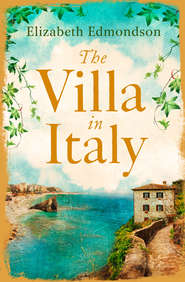По всем вопросам обращайтесь на: info@litportal.ru
(©) 2003-2024.
✖
The Art of Love
Автор
Год написания книги
2018
Настройки чтения
Размер шрифта
Высота строк
Поля
Polly had gradually been allowed to pep up some portraits, giving some worthy gentleman or prosperous paterfamilias more appeal and a touch of style lacking in the mostly very wooden portraits that came through her hands.
‘People prefer not to have ugly or unpleasant faces looking down on them from their dining-room walls,’ Mr Padgett told her. ‘Of course, if they happen to be your ancestors, and your ancestors happen to be a lantern-jawed, disagreeable-looking lot, well, that’s one thing. But if you’re paying good money, then you want something more pleasing. A pretty woman will sell, where an ugly or even just a plain one won’t. And of course, if one of our pictures turns out to be of someone well-known, an admiral or a statesman or an actress, so much the better.’
‘Who buys these portraits?’ Polly said to Sam. ‘If you don’t know the person, and it’s not a wonderful painting, what’s the point?’
Mr Padgett, who was passing behind her, paused to give her question his usual careful consideration.
‘Sometimes a buyer wants to pass a painting off as an ancestor. Other buyers feel that having a few portraits hanging above the stairs adds a bit of class. And we sell a lot to hotels, of a certain kind, new places where they want to make foreign visitors feel they’re staying in a bit of Old England.’
There were times, however, when a portrait or a flower painting would come into the workshop only to be whisked away before it was passed over to Sam or Polly.
‘Hold on, Mr P,’ she had cried on more than one occasion. ‘That’s a promising bowl of fruit and flowers, I can do something with that.’
To which Mr Padgett, frowning, had said, that, no, this picture was staying as it was.
These, Polly found out after a while, were the older canvases. Mr Padgett, in an expansive moment, showed her how, under close scrutiny of the back of the canvas, it was possible to see whether the canvas was hand-made, meaning it dated from the eighteenth century or earlier, or was machine-made. ‘Machine-made canvases didn’t come in until the very end of the eighteenth century,’ Mr Padgett told her.
Of course if a picture had been ruined, then it was extremely difficult to judge whether the canvas had the irregularities that marked it out as hand-made, but Mr Padgett had an eye, and after putting his nose so close to the canvas that Polly thought he must make a dent in it, he would pronounce on its age and the picture would be handed over to her or her fellow assistants in the studio, or whisked away to the main studio.
Presumably Rossetti’s had scruples about refurbishing genuinely old paintings; well, she respected them for it, although a bad painting was still a bad painting, whatever its age.
Polly liked the work, and it certainly allowed her to pay her rent at the times, more and more frequent, when she could make no other money from her drawings or paintings. She’d had a run of luck earlier in the year with book jackets, for which WH Smith paid two guineas apiece; these had recently dried up, and so the twelve shillings a day she earned at Rossetti’s was a godsend.
That Monday was another wet day, the kind of day when the atmosphere became a grey cloud of drizzle, with the wetness creeping under collars and into shoes. Polly felt damp inside and out when she arrived in Lion Yard, she climbed the stairs with extra care, as the steps were always slippery in the rain, and pushed open the door to the workshop.
She was starting work on yet another flower painting, a small canvas, circa 1855, Mr Padgett had said. ‘Believe it or not, the Victorians loved those vivid colours. So did the Georgians, but taste today won’t stand for that kind of thing.’
So, under his watchful eye, Polly had applied his patent varnish-removing fluid, made up to a secret formula, and then the painting had been left out in the yard in the rain for a week, to fade the colours and leave a matt surface for her to work on.
It had dried over the weekend, and now her first task was to alter the colours to give a more realistic representation of the blooms in question. Then, she decided, looking at the picture through narrowed eyes, she would change the balance, to make the design less stiff and formal and give the flowers a more natural, relaxed look.
She took her tattered smock from the hook behind the door, and put some coffee on to brew, warming her fingers at the gas ring; she couldn’t paint with fingers numb from cold.
Sam came up the stairs and into the room. ‘Late again, Mr Carter,’ said Mr Padgett, but without rancour.
‘Sorry, Mr P, ’ Sam said, not sounding in the least apologetic.
Sam was working on what had been a battered seascape. He had a particular knowledge of ships which came from his belonging to a naval family; he had grown up in various ports around the world, and as a boy, he had spent hours out and about in boats. He pulled his easel round to get a better light, and, wiping a fine sable brush on an old rag, he set to work, painting delicate cotton wool puffs from the cannon he had added to an otherwise uninteresting sailing vessel. A man of war gave extra value to a painting, Mr Padgett said, and the more warlike violence a canvas contained, the more easily it would find a customer.
Sam was in a talkative mood when he and Polly were alone later that morning, Mr Padgett having gone off with a delivery of paintings.
‘Of course,’ Sam said, ‘we should go into this business on our own account, make ourselves more than the miserly pay we get here.’
‘What, set up on our own, touching up bad paintings?’
‘Why not? We could buy them up at country house sales and auctions just as Padgett and his scouts do. Cut out the middle man.’
‘Would you want to?’ said Polly, adding some blue dabs to a flat green leaf. ‘What about your own work? What about all that stuff about preferring to be poor, when Mr Padgett wanted you to train properly as a restorer?’
‘Oh, I don’t know,’ said Sam. ‘One says these things, and one bangs on, in the name of art, but is one getting anywhere? I doubt it.’
‘You’re still studying.’
‘Yes, but you aren’t, and where’s your own work going? Do you sell it? Do you think your painting is improving, are you getting down the visions in your head? Is anyone remotely interested? I sometimes think I’ll end up painting Christmas cards, more jolly naval scenes. Robins, too, perhaps, I might have a go at robins.’
‘Could one give it up, just like that?’
‘Dunno. I suspect it gives you up, you wake up one morning and realize that you’ve nothing more to say. Look at you. Mr Padgett raves at your sense of colour, yet your own painting is all dreariness.’
Polly had invited Sam round for tea one Sunday and regretted it ever since. He, with all the braggadocio of a promising student, hadn’t been able to hide his lack of enthusiasm for Polly’s canvases. ‘Why are they all so small?’
‘Small canvases cost less and you use less paint.’ Polly had replied, but it wasn’t the entire truth.
‘They all look as though you’ve been painting what you can see through a windowpane in the fog. I like this, though,’ he had said, crossing the room to look at a canvas Polly had painted for her final show at college.
It was of three of her friends, students on the same course, a much larger picture than anything she had done recently. A red-haired, wild-eyed, hung-over young Irishman; she’d lost touch with him. Dark, sultry, soft-mouthed Fanny Powys, blowing rings of smoke into the air. The third grace, for that was how she had arranged her figures, was an ethereally fair and fragile girl, who was now living and working in New York. It was a good painting, and it was true, she hadn’t done anything half so good since she left college. Polly hated Sam for being so breezy and gung-ho about losing one’s artistic voice. Easy to talk about it when you hadn’t lost your way and had utter confidence that you never would.
They went back to their easels, and worked steadily, until Sam drew back from his canvas, put down his palette and brushes, and pulled out a packet of cigarettes.
Smoking was forbidden in the studio, which was full of inflammable materials, not to mention the canvases stacked up against every surface of the room. But Sam squeezed himself up to the skylight and pried it open, so that he could blow the smoke out into the already smoky London atmosphere.
Sam pulled a magazine out of his pocket. He read all the gossipy papers he could get his hands on, and knew all about the goings-on of anyone in the public eye. ‘My cousin in America sent this to me. Look, pictures of Mrs Cynthia Harkness, dancing at the Columbo Club. Don’t you love that dress?’
Polly took her attention off a strange-looking flower that seemed to be a cross between a blowsy rose and a chrysanthemum. She’d make it a rose, it was a better shape, she decided. She wiped her fingers on a rag and took the magazine Sam was holding out to her, turned back to a page of photographs shot in a nightclub. She looked at the slim figure with the perfect hair and beautifully made-up face, then at the dramatic close-fitting dress, which billowed out in a froth at ankle level.
‘I bet Sir Walter Malreward won’t be pleased if he sees that picture,’ said Sam. ‘He’s going to marry her, you know. Do you think he has a press agency sending him any pictures of her that appear in the press?’
‘Why would he do that?’
‘Keeping tabs on her.’
Sam had followed every step of Cynthia Harkness’s well-publicized divorce, and he followed the progress of Sir Walter’s latest amour with keen attention. ‘It won’t last,’ he had predicted. ‘He rarely keeps his women for more than a year. Then he trades them in for a new model, randy chap that he is.’
Now Sam had changed his mind, and was inclined to think it might be different with Mrs Harkness. ‘He wanted her to get the divorce, that’s what it looks like. Mind you, is she wise? I think her husband looked rather a pet.’
‘Well,’ said Polly, as she squeezed a dollop of orange on to her palette, ‘no one could call Sir Walter a pet.’
‘No,’ agreed Sam. He tossed his cigarette butt out of the window and closed it with a bang. Then he returned to his easel, looked at the picture with pursed lips, and painted a pennant on to the eighteenth-century man-of-war with a dramatic flourish. ‘I’ve told Padgett that this is hopeless. There’s a raging sea, lashing waves against the cliffs, and he wants this ship of the line to be coasting along — as if any captain in his right mind would be so close inshore in a blow like that.’
‘Artistic licence,’ said Polly, and then, ‘oh, damn!’
‘What?’
‘I’ve used chrome orange, and this is a picture from the 1850s, it’s a mite early for it.’
‘As if anyone will notice. My ship caught on a lee shore is far more of a faux pas than a bit of anachronistic colour.’
‘I like to get things right.’









